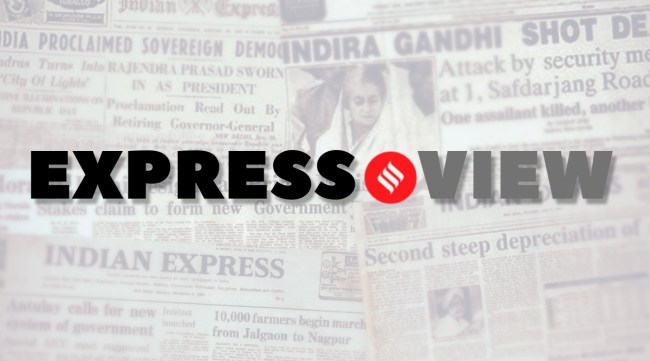Opinion I2U2 summit was made possible by India’s nimble diplomatic moves, can provide a foothold for a greater role in West Asia
In recent years, particularly since Prime Minister Narendra Modi came to office, Delhi has responded to the new diplomatic and strategic dynamic in the region.
 For all the gains India has accrued, a lot more remains to be done. Delhi has traditionally viewed West Asia either through the lens of the Pakistan problem or from the perspective of the region as a leading destination for Indian labour.
For all the gains India has accrued, a lot more remains to be done. Delhi has traditionally viewed West Asia either through the lens of the Pakistan problem or from the perspective of the region as a leading destination for Indian labour. The virtual summit-level I2U2 meeting between the leaders of Israel, India, UAE and US on Thursday took place just nine months after the grouping was launched by the foreign ministers of all four countries in Israel. The UAE has promised a $2-billion plan for “integrated food parks” in India with the assistance of American and Israeli private sectors and the summit also delivered an investment commitment towards a 300-MW hybrid renewable energy project in Gujarat. But beyond these concrete results, the I2U2 is a validation of New Delhi’s nimble foreign policy in West Asia as well as a pointer to the as yet untapped potential in the region.
A grouping like the I2U2 has been made possible by several developments. In recent years, particularly since Prime Minister Narendra Modi came to office, Delhi has responded to the new diplomatic and strategic dynamic in the region — by giving a political imprimatur to the relationship with Israel and engaging more deeply with the Gulf monarchies, for example — while continuing its relationship with Palestine. The foreign office also seems to have shed its earlier wariness about the US’s role in West Asia. Washington, in turn, seems both comfortable with and keen for India playing a more proactive role. The Abraham Accords of 2020, under which the UAE, Bahrain, Sudan and Morocco now have formal ties with Israel too altered the diplomatic calculus in West Asia. That Delhi is already a player in this ongoing realignment is a prospect for cautious optimism about India’s place at the diplomatic table in the region.
For all the gains India has accrued, a lot more remains to be done. Delhi has traditionally viewed West Asia either through the lens of the Pakistan problem or from the perspective of the region as a leading destination for Indian labour. The former — engaging with countries on their own terms, rather than their perceived closeness to Islamabad – has already been addressed to some degree. In terms of the latter, it is important to take into account the immense capital accumulation in the region, and how it has been deployed in infrastructure projects and corridors as far as Africa. Despite the presence of the Indian diaspora, and the country’s energy needs, Delhi currently has a negligible presence in these projects. It must gradually address this deficit, and the I2U2 could help in that regard. The I2U2 has made a modest beginning, with cooperation on climate change and agriculture. The Quad, too, began with cooperation on disaster relief after the 2004 tsunami — it now has a significant strategic dimension.




